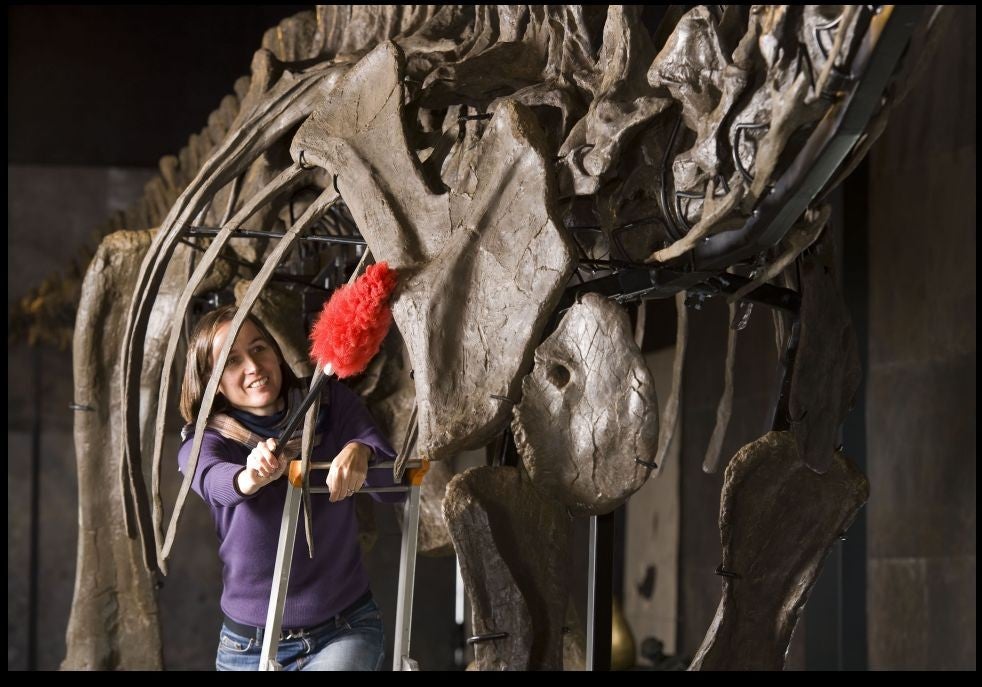60-foot diplodocus dinosaur skeleton sold for £400,000 in Surrey
The skeleton, named Misty, went up for auction as part of a sale of natural history curiosities

Your support helps us to tell the story
From reproductive rights to climate change to Big Tech, The Independent is on the ground when the story is developing. Whether it's investigating the financials of Elon Musk's pro-Trump PAC or producing our latest documentary, 'The A Word', which shines a light on the American women fighting for reproductive rights, we know how important it is to parse out the facts from the messaging.
At such a critical moment in US history, we need reporters on the ground. Your donation allows us to keep sending journalists to speak to both sides of the story.
The Independent is trusted by Americans across the entire political spectrum. And unlike many other quality news outlets, we choose not to lock Americans out of our reporting and analysis with paywalls. We believe quality journalism should be available to everyone, paid for by those who can afford it.
Your support makes all the difference.The gigantic skeleton of 160 million year old diplodocus has been auctioned today for £400,000 in Billinghurst, West Sussex.
Unearthed in the US, assembled in the Netherlands and on sale in the UK, the dinosaur is one of only six relatively complete diplodocus skeletons and was estimated to be worth between £400,000 and £600,000.
The 56-ft long skeleton was discovered by the sons of German palaeontologist Raimund Albersdoerfer during a dig in 2009. Hoping to keep his listless offspring busy, Albersdoerfer had suggested that they dig for bones in a neighbouring site, not thinking that they would find anything notable.
When they reported back to their father that they’d discovered a colossal leg bone all work on the main dig halted and Albersdoerfer spent the next nine weeks unearthing what remained of the gigantic creature.

Errol Fuller, the curator at the Evolution Sale auction, said: "You are talking about a very rare item indeed. Even if you were lucky enough to find one in the first place, the digging out and the preparation then involved is an enormous undertaking.”
The rock that it was embedded in would have been extremely hard to break away from the bones, and you couldn't go at it with a sledge-hammer because the bones were vulnerable to breaking."
After being dug out from the site in Wyoming, the skeleton was sent to Rotterdam to be fitted in its metal frame by Aart Walen, an expert “dinosaur builder”. Luckily for Albersdoerfer the find was made on private land, allowing them to transport it out of the US.

The skeleton is made up of 100 bones and is 40 per cent original, with the other 60 per cent copied from previous specimens.
“There are probably about six of these in the great museums of the world, including in Pittsburg and Washington,” said Fuller.
Speaking to Sky News before the sale, auctioneer James Rylands said "I think we will see a lot of interest from the Far East and possibly the Middle East. You could easily see this dinosaur forming the centrepiece or a big shopping centre or in the atrium of an amazing hotel."
Join our commenting forum
Join thought-provoking conversations, follow other Independent readers and see their replies
Comments